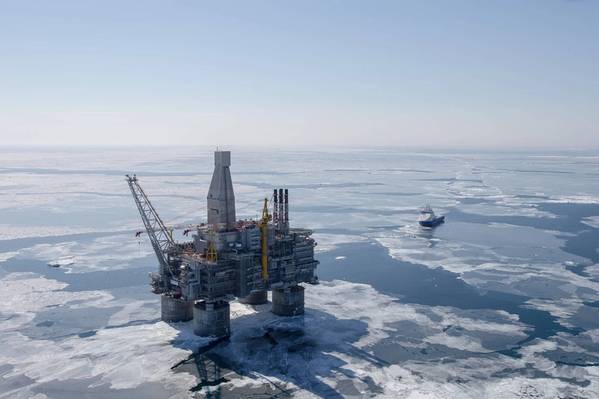
Exxon Neftegaz Ltd (ENL) is adjusting the schedule and scope of some of its activities at the Sakhalin-1 oil and gas project in far eastern Russia as it moves to cut spending in response to the coronavirus crisis and weak oil prices, it said on Friday.
The subsidiary of U.S. oil company Exxon Mobil Corp declined to give further details.
Exxon, like other international energy majors, has been forced to scale back production and investments due to the economic fallout from the spread of COVID-19, the disease caused by the new coronavirus, and a crash in oil prices.
"In response to challenges posed by the worldwide COVID-19 pandemic and the current global oil price environment, ENL is adjusting the schedule and scope of certain Sakhalin-1 activities," ENL said in emailed comments to Reuters.
Exxon posted a $610 million first-quarter loss, its first quarterly loss in three decades, due to an almost $3 billion inventory writedown, reflecting lower margins and prices.
The company has cut this year's project spending by $10 billion and expects to reduce oil and gas output by 400,000 barrels per day (bpd), in line with rivals.
Russia has also undertaken to cut its oil production by around 20% as part of a global deal aimed at improving oil markets, where prices have slumped to two decade lows amid oversupply and a plunge in demand due to coronavirus lockdown.
It is not yet clear if foreign-led projects in the country are a party to that reduction, as oil majors have been haggling with national governments over how to share out deep production cuts.
"ENL, as Sakhalin-1 operator, is looking to reduce spending in response to market conditions, and evaluating all appropriate steps to reduce capital and operating expenses in the near term," the company said.
"We are not commenting on the status of individual projects at this time."
Four companies - Russian energy giant Rosneft (20%), Exxon (30%), Japan's SODECO (30%) and India's ONGC Videsh (20%) - are partners in the Sakhalin-1 group of fields.
In 2018, Sakhalin-1 produced over 11.6 million tonnes (230,000 bpd) of oil and gas condensate. It set its daily production record of 300,000 bpd that year.
(Reporting by Vladimir Soldatkin; Editing by Jan Harvey and Mark Potter)